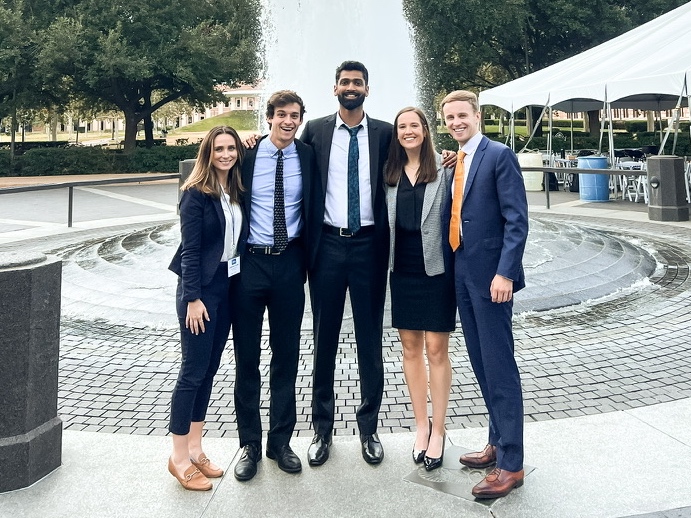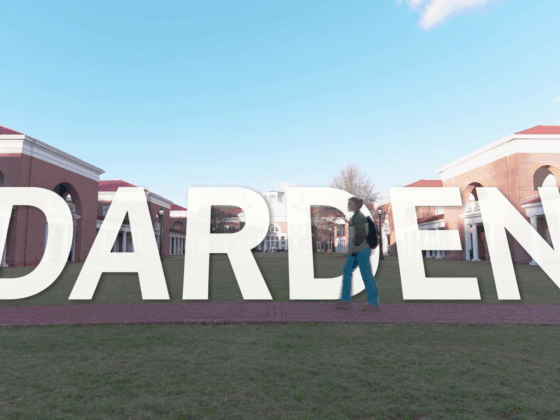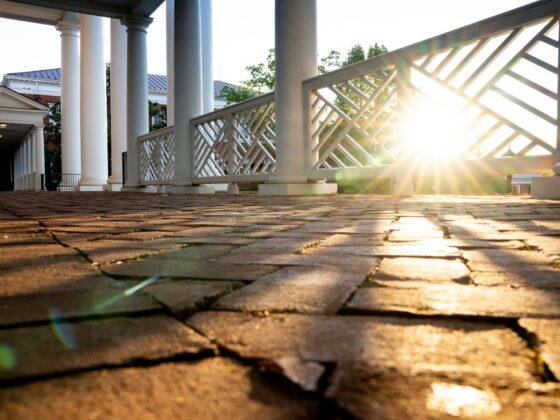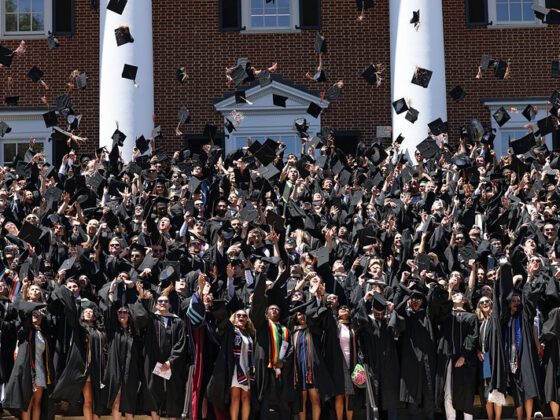Evan Rabb (Class of 2025) is a current Full-Time MBA student at Darden, Future Year Scholar and Dean’s Fellow. We caught up with Rabb to hear about his time competing in Houston, TX:

A few weeks ago, I had the opportunity to compete in the Rice CleanTech Innovation Competition (RCIC), part of the Rice Energy Finance Summit, with my teammates Betsy Brandon, Wesley Brown, Gabrielle Evans, and Prateek Palled. Each of us came to Darden with a passion for sustainability and an eagerness to expand our knowledge of the space. Given that our careers had not centered on sustainability and decarbonization, we thought our team’s name, “Alternative Fools,” was fitting. The RCIC presented a great opportunity for us “Fools” to deepen our understanding about decarbonization and apply the problem-solving skills we have been developing in our core curriculum classes at Darden.
Preparing for competition
This year’s RCIC prompt asked us to address the decarbonization of major industrial processes. Competing teams selected one or multiple industries across cement, oil and gas, iron and steel and chemical manufacturing, to present an investible solution to decarbonize the industry. The first stage of the competition required a standalone slide deck focused on the analysis of the problem and proposed solution’s decarbonization and investment potential.
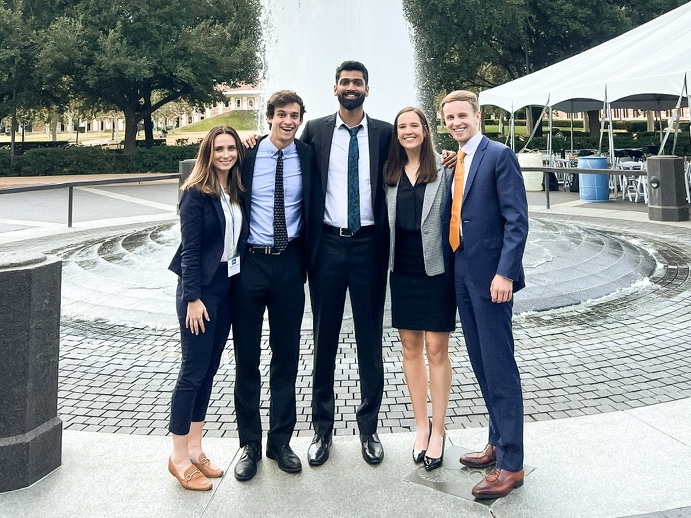
Our team decided to concentrate on Sublime Systems, a company focused on decarbonizing the cement industry by electrifying the production process and substituting in noncarbonate rock for limestone. We sought to balance a deep analysis with a clear story about how Sublime Systems represents the true-zero future of cement production. Though we had just one quarter of Darden’s core under our belt, our team drew upon our individual strengths and adaptable problem-solving skills we’ve been honing with the case method. When we returned from Fall Break, we received exciting news that the “Alternative Fools” were selected as one of five finalists to present at Rice in Houston.
Heading to Houston
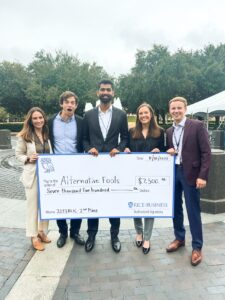 The finals consisted of a 25-minute presentation and a 15-minute Q&A session with a panel of about 20 judges. When we arrived at Rice, we had the opportunity to connect with the four other competing teams. The students represented four schools, both first and second year MBAs, many with backgrounds related to energy and/or sustainability and more.
The finals consisted of a 25-minute presentation and a 15-minute Q&A session with a panel of about 20 judges. When we arrived at Rice, we had the opportunity to connect with the four other competing teams. The students represented four schools, both first and second year MBAs, many with backgrounds related to energy and/or sustainability and more.
As our team entered the auditorium to present to the judges, we felt confident in the presentation and Q&A as the case method demands we be prepared to present and support persuasive arguments on a daily basis. After our Q&A wrapped, we had the opportunity to listen to the other presentations and learn about decarbonization strategies across hydrogen solutions, methane flaring and more. The next day, during the Rice Energy Finance Summit, we were ecstatic to learn that the team finished as the National Runners-Up and the top first year MBA team.
Darden’s Impact
As I reflect on our team’s experience, I am grateful for the people I’ve met and the learning experiences I’ve had at Darden. One of my favorite aspects of Darden is that the school attracts a diverse array of purpose-driven students. When I thought about our team composition, it wasn’t hard to gather four people with unique skills, a passion for sustainability, and excitement to learn. The classroom experience in the Core positioned us to make an effective argument. Each team member understood how each piece of the puzzle contributed to a singular story about the future of carbon-free cement.

